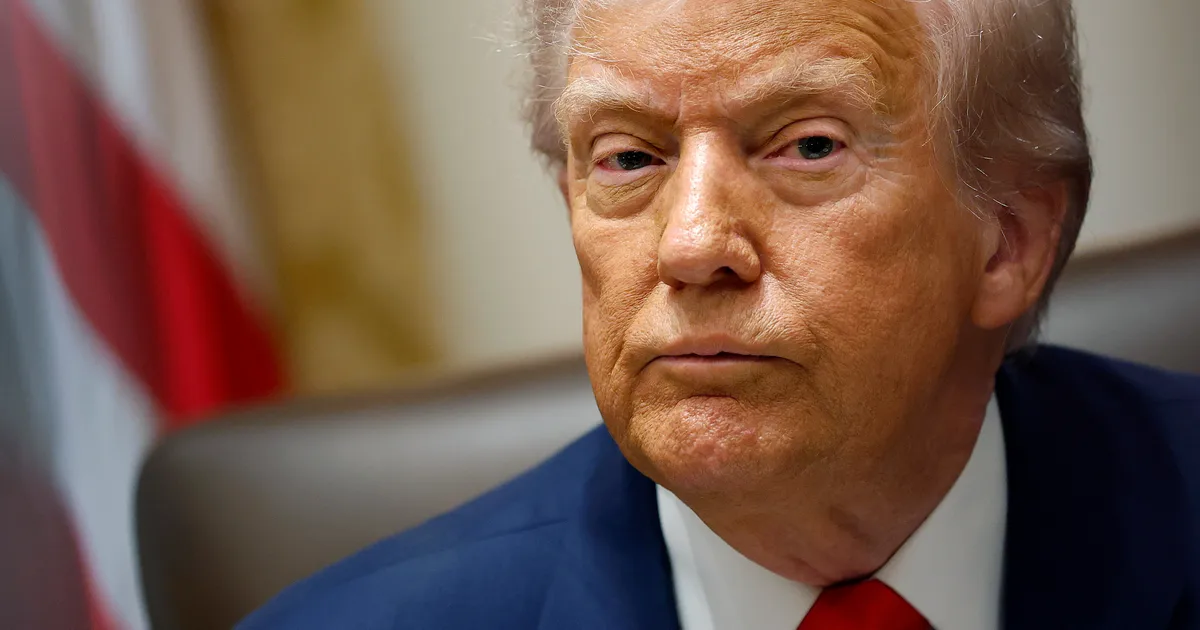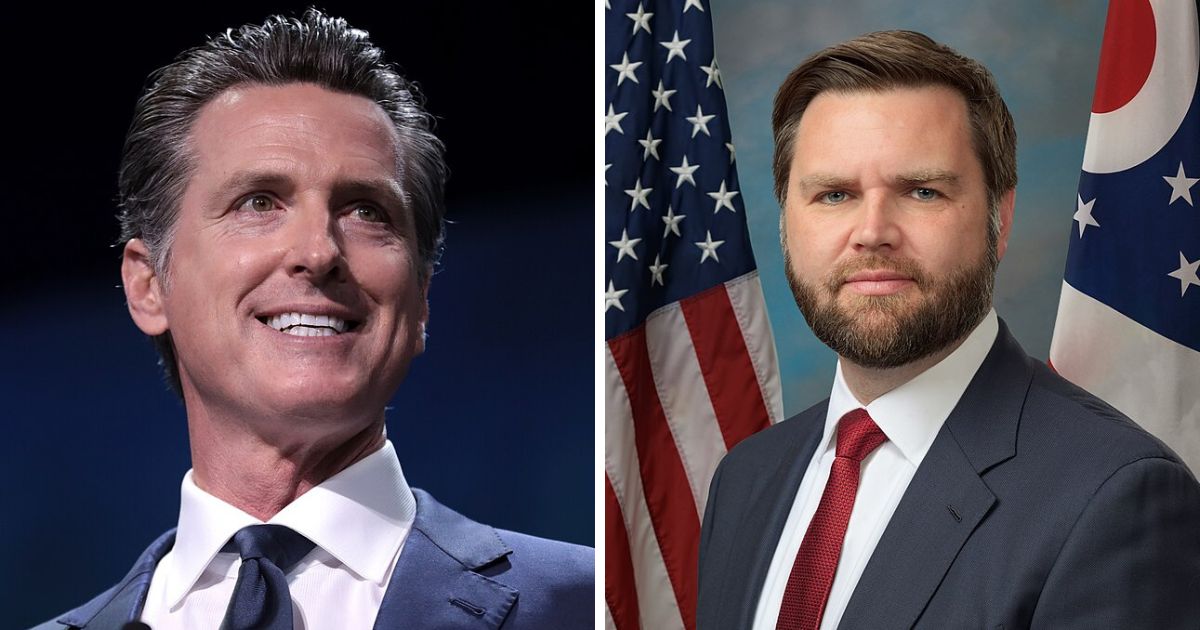Copyright HuffPost

LOADINGERROR LOADING Donald Trump is known for his hasty (and frequent) posts on social media. He regularly has midnight meltdowns on Truth Social, has shared back-to-back posts of AI nonsense on the platform, and threatened people he’s unhappy with in long-winded messages, too. But in recent months, select posts have concluded with an oddly formal phrase: “Thank you for your attention to this matter.” Advertisement For example, a post by the president on Oct. 6 reads: “Beginning November 1st, 2025, all Medium and Heavy Duty Trucks coming into the United States from other Countries will be Tariffed at the Rate of 25%. Thank you for your attention to this matter!” “It’s really different than how he typically posts,” said Claire Robertson, an assistant professor of psychology who focuses on political polarization and extremism at Colby College in Maine. Robertson added that Trump usually uses morally and emotionally loaded words in his posts (such as “hoax” and “corrupt”), which capture attention quickly. “He’s still using a lot of the kind of moral-emotional language that we know attracts attention,” Robertson said of Trump’s social posts as a whole. Advertisement Negative and moral-emotional language draws in engagement, clicks and sharing in a “really polarized way,” she added. “Once something is more moral-emotional, it tends to travel within a political group rather than between political groups.” In other words, these types of posts are designed to get a rise out of people and will often be shared with someone who will get equally as riled up. “But, ‘thank you for your attention to this matter’ is not negative or moral, so it’s especially interesting,” Robertson said. “It doesn’t play super nicely with some of the established findings. It’s just weirdly formal.” Here’s what this phrase ― and Trump’s use of it ― could say about the president and his communication style, according to experts. Advertisement “Thank you for your attention to this matter” is a phrase that asserts control of a situation and its messaging. This type of language is certainly formal; it reads like an email from HR or a warning from a lawyer. But experts say it might also go beyond that. “From a clinical standpoint, the repeated use of the phrase ‘thank you for your attention to this matter’ may read as more than formality. It carries undertones of control and authority,” said Shenikka Moore-Clarke, a holistic psychotherapist. Advertisement “We know Trump is very conscious of wanting to be in control of a situation,” noted Robertson, who pointed out that he is known to “control” handshakes, too, by pulling people hard and slightly knocking them off balance. A phrase like this might also create an expectation of how folks should engage with these social media posts. For some people, “language often becomes a way to manage image and power and to position themselves as the one who sets the terms of engagement,” Moore-Clarke explained. This could lead to a specific type of power dynamic in dictating “how people should relate to” what a person has to say, Moore-Clarke said. Advertisement It’s also a bit presumptive, Robertson added. “It’s assuming that everyone is giving this attention,” Robertson said. There isn’t room to question what the poster is saying. “It’s [subtle] but can be read as being controlling,” Moore-Clarke explained. Additionally, while the words “thank you” are included in this phrase, experts question whether it’s genuine. “It’s less about gratitude and more about command,” Moore-Clarke said, “and it’s a way of asserting control, implying that readers should comply or take note.” Advertisement The phrase commands power. The posts that end with “thank you for your attention to this matter” stand apart from the others in Trump’s social media feed, according to Moore-Clakre. “It ... comes off as ‘this is something important that you need to pay attention to,’ so it [kind of] draws you in,” Moore-Clarke explained. Advertisement In more or fewer words, he’s telling readers this is something that everyone else needs to think is important, too, she added. “I get [the] sense that it’s strategic and it makes his followers trust him more as a source of power, even if what he had to say is not true or harmful to certain groups.” It tends to punctuate more serious posts. “With language, sometimes we have certain cues that ... I don’t know if this is a scientific term, but often they can be called, ‘micro-cultures,’ where something means something different in a specific place,” Robertson explained. For example, your community may refer to a nearby restaurant as “the corner spot” instead of its actual name. In this case, if you follow Trump’s social media religiously, it’s possible “that the posts that end in ‘thank you for your attention to this matter’ may be, for example, more serious than some of his other posts. It might be a signal that this is something that has policy relevance,” Robertson said as an example. Advertisement It’s true that this formal ending doesn’t often accompany the memes Trump posts criticizing other politicians or a call to buy his son’s new book. Instead, “thank you for your attention to this matter” ends posts in which Trump shares something he’s done or something he’s ordering others to do, whether that’s announcing Casey Means as surgeon general or instructing Democrats to “open the government.” YourSupportMakes The Story Your SupportFuelsOur Mission Your SupportFuelsOur Mission Join Those Who Make It Possible HuffPost stands apart because we report for the people, not the powerful. Our journalism is fearless, inclusive, and unfiltered. Join the membership program and help strengthen news that puts people first. We remain committed to providing you with the unflinching, fact-based journalism everyone deserves. Thank you again for your support along the way. We’re truly grateful for readers like you! Your initial support helped get us here and bolstered our newsroom, which kept us strong during uncertain times. Now as we continue, we need your help more than ever. We hope you will join us once again. We remain committed to providing you with the unflinching, fact-based journalism everyone deserves. Thank you again for your support along the way. We’re truly grateful for readers like you! Your initial support helped get us here and bolstered our newsroom, which kept us strong during uncertain times. Now as we continue, we need your help more than ever. We hope you will join us once again. Support HuffPost Already contributed? Log in to hide these messages. Trump may be doing this intentionally, but it could also be unintentional. “We use linguistic cues all the time when we aren’t even realizing it,” Robertson added. Has anyone ever pointed out that you only call your partner a specific nickname when you’re mad? This is an example of that.



